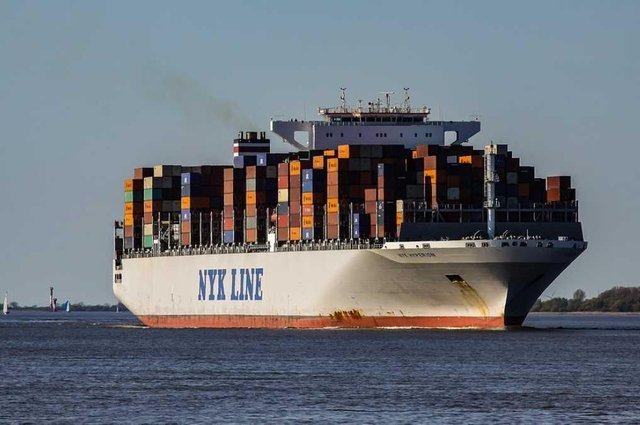Cargo ships will certainly become more pure. But this will not happen soon
The international maritime industry accounts for about 3% of all global greenhouse gas emissions. The problem is that the industry is not covered by the Paris Climate Agreement, and separate agreements are needed to reduce emissions from ships.
More recently, such an agreement has been reached, The Washington Post said. More than 170 members of the International Maritime Organization (IMO) agreed to by 2050 to reduce emissions by 50% compared to 2008.
The importance of such an agreement is difficult to overstate. Marine transportation provides about 90% of all goods turnover in the world, and its volume grows about 3% per year. IMO estimates that if left as is, by 2050 the volume of cargo ship emissions will increase by at least 50%. But there are also more pessimistic forecasts - for him the number of emissions could rise by 250%, while the industry share in total greenhouse gas emissions volume will impress 20%.
The fact is that heavy fuel (HFO), used by cargo ships, is much more "dirty" than other petroleum products. In addition to an increase in the amount of greenhouse gases, HFO during combustion releases sulfur dioxide - the main source of acid rain. For this reason, the use of HFOs in Antarctica has been banned, and soon this prohibition can be extended to the Arctic.
According to the Organization for Economic Cooperation and Development estimates, the introduction of new technologies and the distribution of alternative fuels will almost completely eliminate carbon dioxide emissions in the shipping industry by 2035.
But on the path of progress there is one serious obstacle. Ships are the object of long-term capital investment, and no one will want to abandon its use (and incur major losses) before they serve their time.
the way, this is not the first attempt by IMO to deal with reducing greenhouse gas emissions. In 2013, energy efficiency standards for large capacity vessels are adopted, which by 2030 should be increased by 30%. On the one hand, this is important: large ships account for about 75% of all cargo carried by the sea and 85% of emissions.
On the other hand, as some studies show, the increased energy efficiency of container ships by 9% reduces their emissions by only 1%.In IMO's main skeptic role new initiatives today are Panama and Brazil, which have one of the largest shipping registers. Leading the world economy - the US and China - also does not show much enthusiasm. Given the impact of these countries, the transition of the maritime industry to clean technology will obviously be slow.

Hey, just wanted to let you know I gave you an upvote because I appreciate your content! =D See you around
@greentomorrow did not give you an upvote and has made this exact same comment hundreds of times.
Click the flag to downvote this @greentomorrow comment!
Here are a few ways to support @duplibot and help reduce spam and superfluous comments.